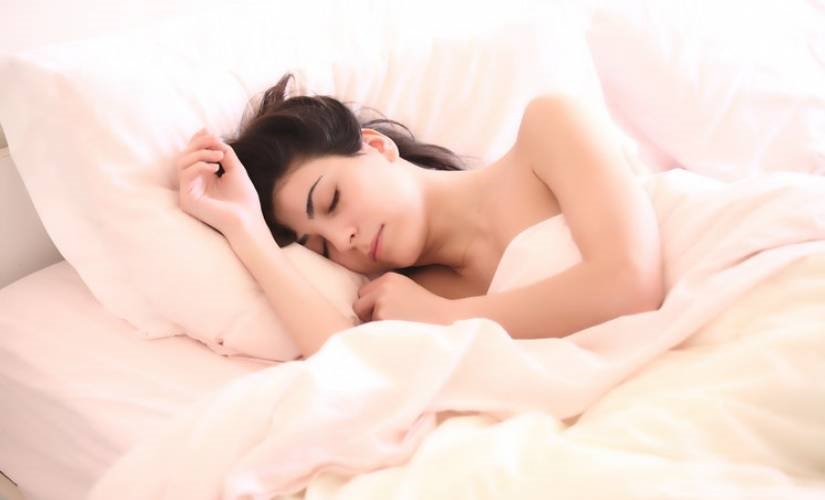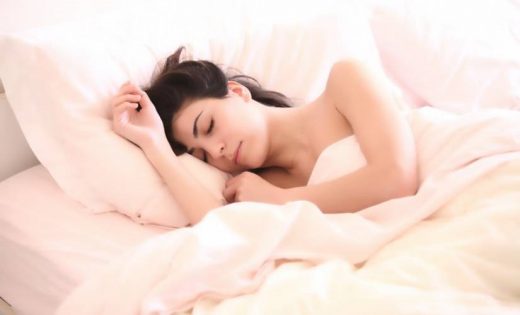The Big Problem With Sleep-Related Technology
The Big Problem With Sleep-Related Technology

Sleep is a major area of human health, so it makes sense that it’s been such a focal point for technology developers. Getting insufficient sleep is associated with many health problems, including fatigue and cognitive difficulties, not to mention an increased risk of heart disease, obesity, and diabetes. Even in the developed world, sleep deprivation is a massive problem, with millions of people getting fewer hours of sleep than they truly need on a consistent basis.
New technologies are constantly emerging to address this sleep deprivation problem, especially in the United States, encouraging people to sleep better (and pay closer attention to their habits). Material technologies have been rolling out for decades, with advancements like better mattresses and innovative specialty blankets that claim to help you sleep better every night. But these days, it’s even more common to see high-tech devices, gadgets, and apps that want to improve your sleep quality.
While these intentions are good, and sleep deprivation is a major problem, sleep-related technology is facing a massive problem that it can’t necessarily overcome: our lack of understanding of sleep on a scientific level.
The Mystery of Sleep
Sleep is still a major mystery, even for sleep scientists who have spent their whole adult lives studying this field. For starters, different people have different sleeping requirements. For some people, 7 hours of sleep is plenty to feel well-rested and reduce their risk of various illnesses. For others, 9 hours is more appropriate. There’s even a subset of the population for whom only a few hours of sleep each night is sufficient. Why do these differences exist? And how can you tell the appropriate number of hours of sleep for you? If scientists can’t answer this question, technology developers and consumers certainly can’t.
Companies also purport to be able to track the quality of your sleep throughout the night, giving you metrics like your heart rate or breathing pattern to help you figure out when, if ever, your vitals change during the night. This information varies in usefulness, since it may not be able to provide you with a solid recommendation for how to adjust your sleep habits even considering the new information. An even more complex area is the study of brain waves during sleep, and the use of things like binaural beats to modify your brain waves to help you get to sleep faster. Technologies that claim to take advantage of these factors aren’t necessarily built on a foundation of science, and may or may not effectively do what they claim.
There are many steps the average person can take to improve the quality (and quantity) of their sleep, but these have little to do with high-tech gadgets. For example, you can try to exercise on a daily basis, limit your caffeine intake, and meditate before bedtime. You can use gadgets to assist you in these areas, tracking your workouts and consumption habits, or guiding you in meditation, but it’s hard to use technology to make a direct impact on how you sleep every night, given our limited understanding of how sleep works.
Clinical Validation and Scientific Backing
There’s also a problem with regulation and oversight. Tech companies can claim that their apps and devices do just about anything, without the need to get approval from any third-party. This is especially true if they’re cautious in their wording; for example, they can claim that this app lets you listen to “calming, relaxing music that facilitates a better night’s sleep” without claiming “if you listen to this music, you’ll fall asleep within 10 minutes and stay asleep for a solid 8 hours.”
Some entrepreneurs go out of their way to test their products in a live environment, and report on their results to market the product. However, there’s a big difference between a small-scale test run by a startup trying to evaluate their product’s effectiveness, and a large-scale clinical trial. It’s easy to distort your findings, regardless of whether or not you mean to. Accordingly, the accuracy of so-called sleep trackers is questionable at best, and there’s limited evidence to support any single device or app in facilitating higher-quality sleep across multiple demographics. If such a technology were fundamentally supported by scientific evidence, thousands of entrepreneurs would be capitalizing on it, and millions of people would be getting good sleep every night—but this isn’t the case.
The Feedback Loop of Anxiety
There’s also some evidence to suggest that chronically using sleep apps may actually produce insomnia. This is likely due to the nature of anxiety and its role in influencing sleep quality. For example, let’s say there’s a consumer who has difficulty sleeping. They stay awake well into the night, tossing and turning and distracted by persistent, obsessive thoughts. They start using a sleep tracking app that uses a combination of data analysis, music optimized for sleeping, and other forms of support to help them sleep better.
After a few nights, they start paying close attention to their sleep metrics as they change throughout the night. They know it takes them a while to fall asleep, so they start thinking about it more. They start wondering whether the music playing is actually helping them get to sleep, and they check in with the app periodically throughout the night. This makes them more stressed and more anxious, which makes it even harder to fall asleep.
This type of problem could be revealed through intensive scientific study, but again, most sleep tech companies aren’t willing to take this step.
Back to Fundamentals
Successful sleep apps tend to focus on the fundamentals of better sleep. This is because they don’t attempt to metricize sleep, and they don’t masquerade as a medical device—two of the most significant problem areas for sleep apps. Instead of tracking thousands of data points, some of which may not even matter, they focus on basic, general habits, like calming your mind before going to sleep or helping you keep track of your diet and exercise patterns. They also don’t claim to magically fix your problems; instead, they merely support you in habits you would have been partaking in anyway.
What We Can Learn
Why does this matter? There are a few important takeaways here, with the most important being related to your use of sleep technology in your own life. It’s important to take the claims of any sleep app or wearable device with a grain of salt; because the science community’s understanding of sleep is limited, it’s unlikely that a single startup has obtained insights or answers beyond what we already know. In fact, over-relying on high-tech sleep aids can actually result in worse-quality sleep, and ongoing insomnia.
But we can also zoom out and learn a thing or two about the nature of new technologies, and the importance of skepticism on the part of consumers. This is especially true given the diversity of device rolling out in the world of IoT. First, having more data doesn’t necessarily lead to better outcomes; you can collect all the data you want about your sleep patterns, but if it doesn’t lead to any meaningful direction on how to improve your sleep habits, it’s not going to help you. Second, companies in new spaces can make practically any claims they want, with minimal repercussions. Just because an app developer claims the app works a certain way or results in a certain improvement, doesn’t mean it will.
Of course, there are valuable sleep-related apps out there, and a plethora of valuable IoT devices. If you want to make the most of them, and continue supporting best-in-class technology, it’s important to dig deeper and look for the evidence that they work. It’s also important to know that there are fields we still don’t completely understand—and developing technology within those realms may be an exercise in futility (at least in the short term). Until we know more about sleep on a fundamental level, sleep app developers and entrepreneurs will have their work cut out for them.
The post The Big Problem With Sleep-Related Technology appeared first on ReadWrite.
(37)


